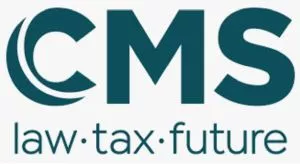This Back to Basics note follows our key concepts briefings, which intend to provide high-level insights regarding funds fundamentals, funds vehicles and operational considerations, available here.
What is a RAIF?
Luxembourg introduced the RAIF by a law of 23 July 2016 (theRAIF Law). RAIFs are also subject to the law of 12 July 2013 on Alternative Investment Fund Managers (theAIFM Law).
RAIFs are considered as semi-regulated funds because they are not subject to the supervision of the Commission de Surveillance du Secteur Financier (CSSF), the Luxembourg supervisory authority but still involve the nomination of a duly authorised alternative investment fund manager (AIFM) subject to the AIFM Law.
The RAIF regime aims at introducing a model with a less sophisticated process than regulated funds, without a double supervision by the CSSF, which make it more attractive for investment funds and asset management. The Luxembourg regime aligns with the European Union (EU's)'approach, through the Directive on AIFMs (the AIFMD), to focus on management supervision rather than product supervision.
Key features
Eligible investors:
RAIFs are reserved for "well-informed investors", who are:
- Institutional and professional investors (within the meaning Annex II to Directive 2014/65/EU); or
- Other investors who have stated in writing that they adhere to the status of well-informed investor and, either (i) invest a minimum of 100,000 Euros in the RAIF or (ii) have been the subject of an assessment made by a credit institution, an investment firm or a UCITS management company or an authorised AIFM certifying their expertise, experience and knowledge to adequately appraise the contemplated investment in the RAIF.
Eligible assets:
There is no restriction on the eligible assets. A RAIF may state in its constitutive documents that its exclusive purpose is to invest in risk capital, in which case the portfolio is limited to investments in risk capital.
Corporate form and structuration:
RAIFs are open or closed entities which take the form of:
- Fonds commun de placement (FCP) or common contractual fund, which is a fund without legal personality managed by a Luxembourg management company; or
- Société d'Investissement à Capital Variable (SICAV) or investment company with variable capital, in the form of a corporate entity (e.g. SA, SCA, Sàrl) or of a partnership with or without legal personality (SCS or SCSp).
RAIF can be formed as a single fund or as an umbrella structure with an unlimited number of ring-fenced sub-funds. Each sub-fund can have its own investment policy, specific features, governing rules or investment manager.
Set up:
The RAIF may be set up as a partnership, a corporate company or an FCP further to the establishment or incorporation process of such entity (e.g. execution of a LPA, management regulations or incorporation of the company in front of a Luxembourg notary).
The RAIF must establish an offering document which includes the information necessary for investors to be able to make an informed assessment of the investment and related risks.
The service agreements of the mandatory RAIF's service providers (as set out below) must be effective as of the date of its establishment / incorporation.
The RAIF must be registered on the official list of RAIFs held with the Luxembourg trade and companies register.
Capital requirements:
The net assets of a RAIF may not be less than EUR 1,250,000, which must be reached within a period of twenty-four months following the entry into force of the management regulations of the FCP or from the incorporation of the SICAV. Only 5% of the capital must be paid up on subscription.
Diversification:
RAIFs are subject to an obligation of diversification. The RAIF Law does not impose diversification rules. In practice, a limitation of 30% of the RAIF gross assets in any single investment is generally applied. RAIFs may benefit from an initial ramp-up period to comply with the above risk-spreading rules.
These above diversification requirements do not apply to RAIFs investing solely in "risk capital" investments.
Marketing:
RAIFs benefit from the European marketing passport provided by the AIFMD to market shares, units or partnership interests across the European Economic Area.
Service providers:
RAIFs must appoint several service providers, the main ones being as follows:
- anauthorised AIFM. RAIFs cannot be internally managed;
- a depositary having its registered office in Luxembourg or a branch in Luxembourg (if its registered office is in another Member State of the European Union), to ensure the safe keeping of its assets;
- an authorised independent auditor with appropriate professional experience which must audit the annual report;
- a central administrator whose head office must be located in Luxembourg; and
- a portfolio manager in case of delegation by the AIFM.
Tax regime:
Default Regime
RAIFs are not subject to corporate income tax, municipal business tax or net wealth tax but are subject to an annual subscription tax of 0.01% on their net assets (calculated and payable on a quarterly basis). Some exemptions from subscription tax apply depending on the investment assets (e.g., assets invested in other Luxembourg UCIs subject to this subscription tax, investment in microfinance institutions and pension fund pooling vehicles). Distributions made by RAIFs are not subject to withholding tax. RAIFs established under a corporate form may benefit from some tax treaties concluded by Luxembourg.
RAIF investing in risk capital
This regime is similar to the SICAR regime.
- RAIF under a corporate form will be subject to
corporate income tax and municipal business tax at the aggregate
rate of 24,94% (for Luxembourg-city in 2023) with an exemption
available for income and gains derived from (i) transferable
securities representing investments in risk capital and (ii) income
arising from funds held pending their investment in risk capital
(only applicable for a maximum period of twelve months preceding
their investment in risk capital and where it can be established
that the funds have effectively been invested in risk
capital).
RAIFs will be exempt from Luxembourg net wealth tax except for the minimum net wealth tax.
Distributions made by RAIFs are not subject to withholding tax in Luxembourg.
RAIFs should have access to the double tax treaties concluded by Luxembourg.
- RAIFs under a partnership
form are tax transparent and are not subject to
corporate income tax, municipal business tax and net wealth tax.
Distributions made by RAIFs are not subject to withholding tax.
RAIFs should not be entitled to the double tax treaties concluded
by Luxembourg.
RAIFs under a corporate form are subject to 20% real estate tax on rental income and capital gains realized upon disposal of Luxembourg real estate assets and disposal of interests or units in Luxembourg tax transparent entities or mutual funds holding Luxembourg real estate assets.
Management services rendered to RAIFs are exempt from VAT.
Investment management services provided to RAIFs are exempt from VAT.
In Brief:
| RAIF | |
|---|---|
| Legal regime | Law of 23 July 2016 on reserved alternative investment funds (RAIF Law) and Law of 12 July 2013 on alternative investment fund managers (AIFM Law) |
| Supervision by the CSSF | No |
| Qualification as an AIF | Always qualifies as an AIF |
| Eligible investors | Well-informed investors |
| Eligible assets | Unrestricted (with option to invest exclusively in risk capital) |
| Corporate form and structuration |
|
| Minimum capital requirement | EUR 1,250,000 to be reached within 24 months from the entry into force of the management regulations of the FCP / incorporation of the SICAV |
| Diversification | Yes, usually no more than 30% of its gross assets in any single asset (not applicable to SICAR-like RAIFs) |
| Marketing passport | Yes |
| Taxation |
|
The content of this article is intended to provide a general guide to the subject matter. Specialist advice should be sought about your specific circumstances.



